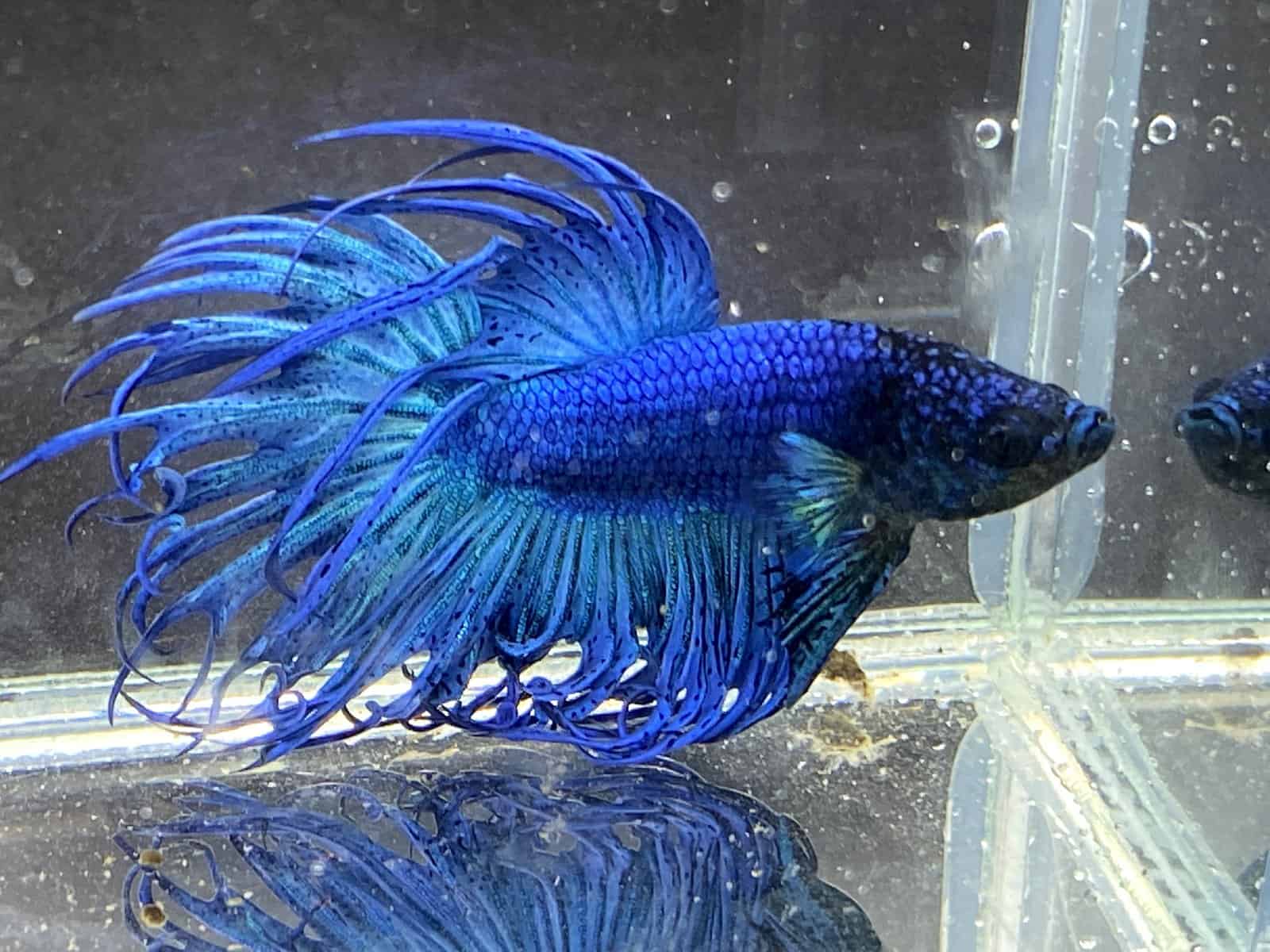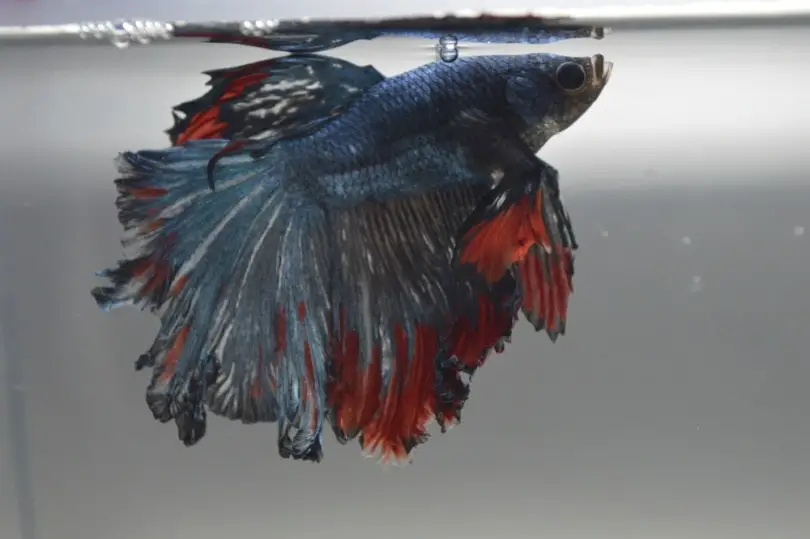Betta fish are beautiful and fascinating creatures that can bring joy and life to any aquarium. However, overfeeding these fish can have disastrous consequences. Many betta owners are unaware of the harm that overfeeding can cause, and the long-term effects it can have on their pet’s health.
In this article, we will explore the consequences of overfeeding your betta fish, including the risks of obesity, swim bladder disorders, and even death. We will also provide helpful tips and advice on how to properly feed your betta fish to ensure their health and happiness. So, if you are a betta owner or thinking of becoming one, read on to learn how to avoid the dangers of overfeeding and keep your beloved fish thriving.
Overfeeding your betta fish can lead to a variety of health problems, including obesity, constipation, and even death. Symptoms of overfeeding include bloating, lethargy, and disinterest in food. To deal with the consequences of overfeeding, start by fasting your betta for a day or two. Then, feed them a small amount of food once or twice a day, being careful not to overfeed. You can also try adding a pea to their diet to help with constipation. Remember, a healthy betta is a happy betta!

Dealing with the Consequences of Overfeeding Your Betta Fish
Betta fish are beautiful and captivating creatures that are popular among aquarium enthusiasts. One of the most common mistakes made by new betta fish owners is overfeeding their fish. Overfeeding can lead to a variety of health problems for your betta fish, including obesity, constipation, and even death. In this article, we will discuss how to deal with the consequences of overfeeding your betta fish.
What Happens When You Overfeed Your Betta Fish?
Overfeeding your betta fish can have serious consequences. One of the most common problems associated with overfeeding is obesity. Betta fish that are overweight may have difficulty swimming, become lethargic, and be more susceptible to disease. In addition, overfeeding can lead to constipation, which can cause your betta fish to become bloated and uncomfortable. Constipation can also lead to swim bladder disease, which can cause your betta fish to float uncontrollably or sink to the bottom of the tank.
Benefits of Proper Feeding
Proper feeding is essential to the health and well-being of your betta fish. Feeding your betta fish the right amount of food at the right time can prevent overfeeding and its associated health problems. Proper feeding can also help to prevent disease and keep your betta fish healthy and active.
How Much Should You Feed Your Betta Fish?
It is important to feed your betta fish the right amount of food. A good rule of thumb is to feed your betta fish no more than what they can consume in two minutes. Overfeeding can lead to health problems, so it is important to avoid feeding your betta fish too much.
What Should You Feed Your Betta Fish?
Betta fish are carnivorous, which means they need a diet that is high in protein. You can feed your betta fish a variety of foods, including pellets, flakes, and live or frozen foods. It is important to choose a high-quality betta fish food that is specifically formulated for betta fish.
How Often Should You Feed Your Betta Fish?
You should feed your betta fish once or twice a day. Overfeeding can lead to health problems, so it is important to avoid feeding your betta fish too often.
What to Do If You Overfeed Your Betta Fish?
If you overfeed your betta fish, there are several things you can do to help them. First, remove any uneaten food from the tank to prevent it from decomposing and polluting the water. Second, fast your betta fish for a day or two to give their digestive system a chance to recover. Finally, make sure you are feeding your betta fish the right amount of food to prevent overfeeding in the future.
The Consequences of Overfeeding vs Underfeeding
While overfeeding can lead to serious health problems for your betta fish, underfeeding can also be harmful. If your betta fish is not getting enough food, they may become weak and more susceptible to disease. It is important to feed your betta fish the right amount of food to keep them healthy and active.
Conclusion
In conclusion, overfeeding your betta fish can have serious consequences. It is important to feed your betta fish the right amount of food at the right time to prevent overfeeding and its associated health problems. If you do overfeed your betta fish, there are steps you can take to help them recover. By following these tips, you can help to keep your betta fish healthy and happy for years to come.
Frequently Asked Questions
What are the consequences of overfeeding a Betta fish?
Overfeeding your Betta fish can have serious consequences. Betta fish have small stomachs and can only eat a small amount of food at a time. Overfeeding can lead to bloating, constipation, and swim bladder disease. In severe cases, it can even cause death.
If you notice that your Betta fish is bloated, floating on its side, or having trouble swimming, it may be suffering from swim bladder disease. This is a serious condition that requires immediate attention. You should stop feeding your Betta fish for a few days and then slowly introduce small amounts of food back into its diet.
How often should I feed my Betta fish?
Betta fish should be fed once or twice a day. It is important to give them only as much food as they can eat in a few minutes. Overfeeding can cause serious health problems, as mentioned earlier. Betta fish are carnivores and should be fed a high-protein diet. You can feed them live or frozen foods, as well as high-quality Betta pellets.
If you are unsure about how much to feed your Betta fish, you can consult a veterinarian or a pet store specialist. They can provide you with guidance on proper feeding habits and recommend specific foods to keep your Betta fish healthy.
What can I do to prevent overfeeding my Betta fish?
To prevent overfeeding your Betta fish, it is important to establish a feeding schedule and stick to it. You should only feed your fish once or twice a day, as mentioned earlier. You should also only give them as much food as they can eat in a few minutes.
Another way to prevent overfeeding is to use a feeding ring or a small container to feed your Betta fish. This will help you control the amount of food that is given to your fish and prevent them from overeating. Additionally, you should avoid giving your Betta fish treats or human food, as this can lead to overfeeding and health problems.
What are the signs of overfeeding my Betta fish?
The signs of overfeeding your Betta fish can include bloating, constipation, swim bladder disease, and decreased activity levels. You may also notice that your Betta fish is not eating as much or is not interested in food.
If you suspect that your Betta fish is suffering from overfeeding, you should stop feeding it for a few days and then slowly reintroduce small amounts of food back into its diet. If the symptoms persist, you should seek the advice of a veterinarian or a pet store specialist.
What should I do if I have overfed my Betta fish?
If you have overfed your Betta fish, you should stop feeding it for a few days and then slowly reintroduce small amounts of food back into its diet. You should also monitor your fish for any signs of bloating, constipation, or swim bladder disease.
If the symptoms persist or worsen, you should seek the advice of a veterinarian or a pet store specialist. They can provide you with guidance on how to properly care for your Betta fish and prevent overfeeding in the future. It is important to remember that overfeeding can have serious consequences and should be avoided at all costs.

Don’t Over Feed Your Fish! But Why? You Oughta Know Over Feeding Kills Fish!
In conclusion, overfeeding your Betta fish can have serious consequences for their health and wellbeing. It is crucial to maintain a balanced diet and not to overindulge your fish. By doing so, you can avoid potential health issues such as bloating, constipation, and even swim bladder disease.
To prevent overfeeding, it is recommended to feed your Betta fish small amounts of food twice a day. You can also consider providing them with a varied diet that includes different types of food such as pellets, flakes, and frozen or live food.
Remember, your Betta fish’s health is in your hands, and it is your responsibility to ensure they are well-cared for. By following these simple guidelines, you can help your fish live a long and healthy life, free from the consequences of overfeeding.
